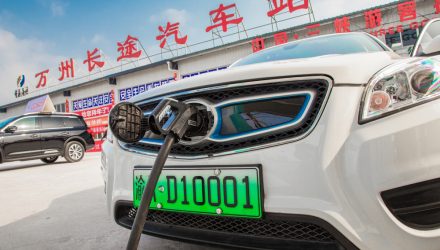As the world absorbs the latest findings by the Intergovernmental Panel on Climate Change findings of greenhouse gas emissions peak by 2025 to maintain global warming close to 1.5C, countries continue to fuel the transition to electric vehicles in efforts to reduce carbon footprints. The issue that many are running into in a world heavily impacted by the pandemic isn’t one of funding but instead of supply, lithium to be exact.
Countries like the U.S. are revving up manufacturing of electric vehicles as government support and regulations lend credence to the transition from internal combustion to low-zero emission options but it’s a shift that has happened so rapidly that alternate supply chains for lithium outside of China haven’t been developed adequately, reported the Financial Times. China dominates the global supply of raw lithium for its own development of electric vehicles, a rapidly growing industry for the country.
Battery manufacturers outside of China are feeling the crunch as the lithium shortages mean drastically reduced production at a time when demand is ramping up. Supply chain issues driven by the pandemic as well as geopolitical tensions and risk have only underlined the importance for western countries to develop their own lithium supply chain.
“Right now China owns basically 70-80 percent of the entire supply chain for electric vehicles and lithium-ion batteries, and therefore energy storage,” said Stuart Crow, chair of Lake Resources, an Australian lithium producer. “The west has been remarkably slow to adopt a strategy to try and assist and secure a supply chain.”
As alternative sources of lithium supply are established and slowly get up and running, it means that current supplies will leave lithium-hungry industries, like EVs, starved for supply outside of China, with estimates anywhere from 50,000 tons short to 400,000 tons short per year, according to Crow.
In order to bring the transportation industry into alignment for emissions, the International Energy Agency has calculated that roughly 47 million EVs must be sold annually by 2030 in order to abide by the Paris Agreement goals. Rio Tinto, a mining group, estimates that lithium demand will grow 25%-35% a year over the course of the next ten years.
Diversifying EV Investment Globally, Including China
For investors looking to capture the potential growth of major EV producers globally, the KraneShares Electric Vehicles and Future Mobility ETF (NYSE: KARS) offers a good solution.
KARS invests in many familiar car companies such as Tesla, Ford, Mercedes-Benz, GM, BMW, and others, as well as major Chinese EV manufacturers such as Xpeng, Nio, and BYD, some of the biggest companies in the global electric vehicle industry.
KARS measures the performance of the Bloomberg Electric Vehicles Index, which tracks the industry holistically, including exposure to electric vehicle manufacturers, electric vehicle components, batteries, hydrogen fuel cells, and the raw materials utilized in the synthesis of producing parts for electric vehicles.
The index has strict qualification criteria. Companies must be part of the Bloomberg World Equity Aggregate Index, have a minimum free-float market cap of $500 million, and have a 90-day average daily traded value of $5 million.
The ETF has an expense ratio of 0.70%.
For more news, information, and strategy, visit the Climate Insights Channel.

